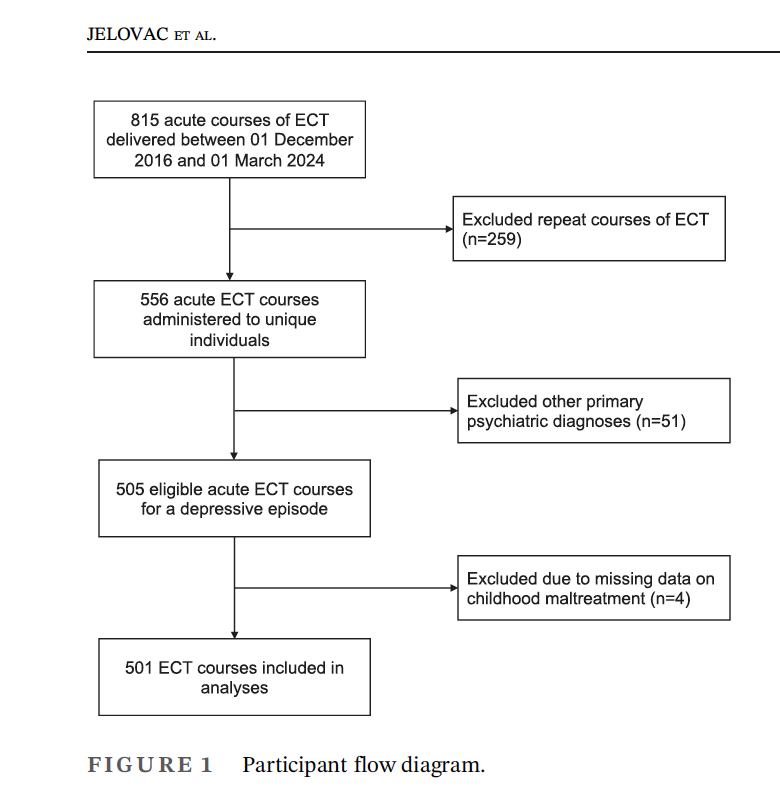Childhood Maltreatment and Outcomes Following ECT in Adults With Depression: New Data From Ireland
Out on PubMed, from authors in Ireland, in Acta Psychiatrica Scandinavica, is this paper:
Childhood maltreatment and outcomes following electroconvulsive therapy in adults with depression.
Acta Psychiatr Scand. 2024 Sep 5. doi: 10.1111/acps.13756. Online ahead of print.PMID: 39234974

The abstract is copied below:
Objective: Childhood maltreatment is associated with less favourable treatment outcomes with pharmacotherapy and psychotherapy for depression. It is unknown whether this increased risk of treatment resistance in maltreated individuals extends to electroconvulsive therapy (ECT).
Methods: This retrospective cohort study included 501 consecutive adult referrals for an acute course of twice-weekly ECT for unipolar or bipolar depression at an academic inpatient centre in Ireland between 2016 and 2024. Retrospectively reported physical and sexual childhood maltreatment were assessed on hospital admission. Response was defined as a score of 1 or 2 and remission was defined as a score of 1 on the Clinical Global Impression - Improvement scale 1-3 days after final ECT session. Logistic regression analyses were used to examine the associations between childhood maltreatment and ECT nonresponse and nonremission, adjusting for covariates. Mediation analyses were conducted to explore the role of psychiatric comorbidities, persistent depressive symptoms lasting 2 years or more in the current episode, and baseline depression severity.
Results: Compared to the group with no childhood maltreatment, the childhood maltreatment group had similar odds of ECT nonresponse (adjusted odds ratio = 1.47, 95% CI = 0.85-2.53) but significantly elevated odds of ECT nonremission (adjusted odds ratio = 3.75, 95% CI = 1.80-7.81). In a mediation analysis, presence of persistent depressive symptoms mediated 7.4% of the total effect of childhood maltreatment on ECT nonremission.
Conclusion: Individuals with exposure to childhood maltreatment may be less likely to achieve full remission following a course of ECT.
Keywords: childhood maltreatment; depression; electroconvulsive therapy; remission; response.
The article is here.
And from the text:
This is a very interesting study, carefully done, and with sophisticated statistical/analytic techniques. The results are not unexpected, but of uncertain causation.
I would have attributed the poorer outcomes to less integrity of the primary psychiatric illness (formerly called "Axis I"), but the family history of psychiatric illness is actually HIGHER in the maltreatment cohort.
And finally, perhaps "remission" is not the end-all and the be-all; many patients will have some residual symptoms and perfection (remission) may be the enemy of the good (response).






Comments
Post a Comment